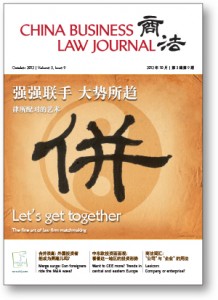What in the name of trademark sanctity is going on in China of late? These past few months it seems high-profile cases involving trademark theft, brand copying and intellectual property pilfering are screaming from morning newspapers here and around the world. The iPad debacle is of course the first that comes to mind but several others, from big companies to luxury brands to big-name American celebrities have also been paraded before the courts in search of justice over the copying in China of their own brands or ideas. Many have fallen victim to so-called squatters, people who register the Chinese-language equivalent (and sometimes the English version as well) of a famous foreign name in the hope of a windfall from the offended company or person, or sometimes simply to cash in themselves with products that sport the brand.

We also take a look at offshore jurisdictions this month. Law firms are seeing good business, most of it from a China that is ever hungry for overseas investment. We talk to legal experts and representative bodies from various jurisdictions about regulatory changes in China and abroad, as well as the big issues and deals that have dominated the past 12 months. The recent amendments to companies legislation in relation to mergers and acquisitions, particularly but not exclusively in the Caymans, have prompted a trend upwards in M&A activity, especially with take-private transactions in the US. On the downside, the Chinese special purpose acquisition companies market has effectively dried up following recent Chinese accounting frauds and delistings. Some firms in remote jurisdictions are also hinting at expanding into China, Hong Kong or the region in the not too distant future, to improve their accessibility.
We felt it was time for a well-considered examination of competition law in China and India, drawing comparisons between the two, and also internationally with the US and the EU. The feature, entitled Healthy competition: China v India, explores new anti-monopoly laws in place, and lists case studies with hypothetical situations and how they apply to these economies. Both China and India face similar challenges, but it would be foolish to treat the two giant economies in the same way.
While recognising that both economies have come a long way with the introduction of new competition laws, the proof of the legislative pudding will be in how these laws are accepted and enacted in real situations. It’s a timely warning to international companies across all sectors to get familiar with the latest developments, while also investing in compliance and training.





















